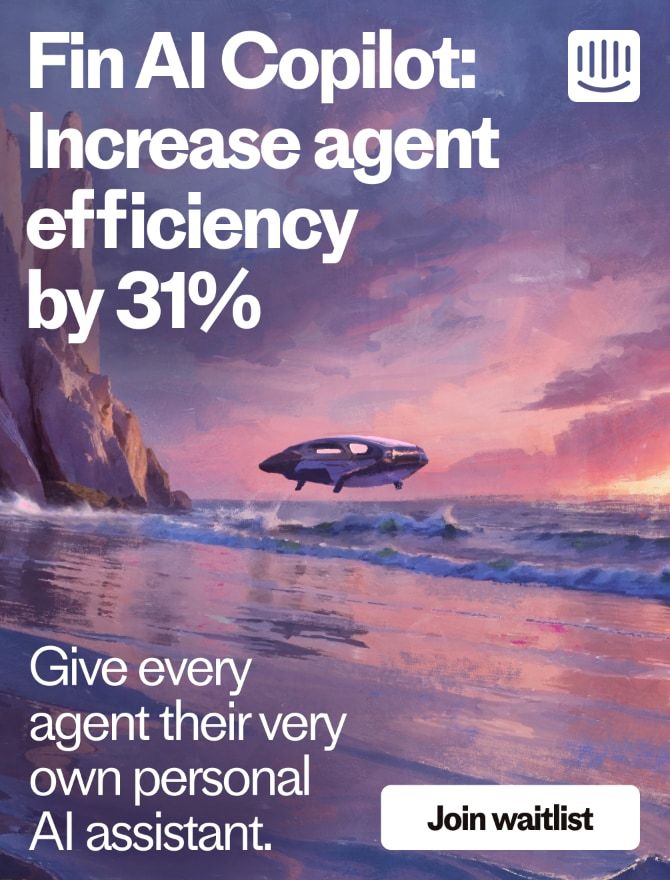
Why your startup needs interview structure
Main illustration: Emmanuel Hourquet
Every company needs to hire people, but startups often need to hire faster and in more bulk than any other types of companies.
Rapid growth or an influx of investor money might mean that you will need to recruit an entire team of engineers or account executives in one quarter. It’s easy to jump head first into the pipeline and rely on your existing employees’ judgement and gut feeling when it comes to making hiring decisions, but that will lead to errors more frequently than you would like – and with damaging results.
You need to structure your interview process to each role you’re hiring for. It’s important for building your hiring brand, developing good interview habits and thoroughly vetting candidates. I joined Intercom two years ago and saw our Dublin office grow from 60 to 185 employees. I’ve recruited for many roles ranging from product engineers, customer support representatives, admin assistants – even editors. While areas of emphasis and expertise for those roles have varied wildly, being deliberate about interview structure has helped zero in on the best candidates for each job. Here are a few routine checkpoints I’ve used to make that happen.
Step 1: Define the role and establish measurable competencies
Think of this as a prequel to the actual interview process, a task you should complete before you speak to any candidates at all.
Defining competencies will help you focus each stage of your interview process on decision-critical factors. For example, if the person you want to hire needs impeccable writing skills, give candidates a writing task to complete early in the process. This might seem easier for technical roles (as your candidates need to have a certain level of coding skills), but with a small dose of analytical thinking you can define competencies for any role.
Start by establishing what this person will be doing for the majority of their day. What’s their purpose in your startup? What skills, attributes and experience do they need to have in order to reach the objectives that you’ve set for them? For example, when hiring into our Customer Support team, we look for strong performance in four main categories, which link to the cultural tenets of the team:
- Ambition and Achievements – we want our to grow our customer support talent
- Ownership/Proactiveness/Resourcefulness – we want our team to follow the 15-minute rule and be proactive when solving problems
- Customer Focus and Prioritization – because empathy is key to better support content
- Teamwork and Feedback – we’re big fans of radical candor
Other categories that have worked well for non-specialist roles include understanding of Intercom’s business, familiarity with software and technology, problem solving skills and curiosity.
A useful approach here is that of strong opinions weakly held.
Here’s a pro tip: Take 15 minutes to look at LinkedIn profiles of people who are currently doing the job you’re scoping, or talk to others in your industry and get their insight on who makes a successful Product Manager, Administrative Assistant or Account Executive, and then discuss with your team to sanity check against your own requirements.
Keep in mind, defining competencies is a fluid task. You will likely need to iterate on your definitions when speaking to different candidates and receiving feedback from interviewers. A useful approach here is that of strong opinions weakly held – be precise and opinionated, but also flexible when a course correction is needed.
Step 2: Prep your candidates before they come in for an interview
At Intercom we don’t share our interview questions in advance, but we do explain the areas of competency that each interview session will cover. We also send candidates the full interview schedule with links to each interviewer’s profile. Candidates can prepare relevant examples to talk us through and read up a bit on who they will meet. Unless you’re hiring for a role that requires quick thinking, this leads to much more thorough answers on the part of the candidate. It takes a lot of the guesswork out of the interview process and allows you to dig deeper into specific skills. It also gives your candidate a great experience where they don’t associate your business with stress from the get-go.
Interview prep does not need to be a long-winded procedure (as you might not have a fully fledged recruiting or people operations team to do this). As a starting point you can send candidates links to important updates about your company, invite them to test out your product, tell them what areas of competency you will be covering in the interview, etc. Blog posts and other publications that your company has already produced are also an excellent resource – our prime example here is the hugely popular blog post on how we hire engineers.
Step 3: Collect valuable interview feedback
Your should enroll 4-5 interviewers for an onsite interview loop, and ideally they should represent different teams or areas of expertise. Each of them should cover the skills area that is closest to their own. For example, in a recent process for Associate Product Manager, we started with a case study presentation (this was an exercise we gave candidates to complete at home) and followed it with three individual sessions, each focusing on the nuances of collaborating with Design, Engineering and Product Management in this role.
I’ve seen that practical exercises or portfolio reviews work better for less experienced interviewers and individual contributors, while unstructured conversations work better for more senior people on the panel. Your panel should have a combination of both, with a split of about 70-30 between competency interviews (case studies) and conversations around behaviors and thought processes. Have every interviewer write down their feedback using three key questions:
- What are the candidate’s exhibited strengths and weaknesses?
- Will this person nail the role? Will they have a promising trajectory in it?
- Are there risks associated with this hire, if so, can they be mitigated?
Our recruiting tool Greenhouse allows us to list these questions in separate text boxes to ensure that interviewers provide an answer to each.
Feedback should be concise and focused on skills and attributes the candidate demonstrated, rather than on the flow of the session (i.e. no need to describe in detail what the candidate said, what examples were given, etc.). Your interviewers should submit their feedback as soon as possible after the interview, without consulting anyone else – we do this at Intercom to ensure objectivity in our assessment. It also allows us to speed up our process as feedback is typically submitted within 24 hours after the interview.
Step 4: Hold your group debrief
Use your debrief (a meeting with all interviewers, typically held 1-2 days after the interview) to share observations and clarify anything that needs further digging into. Stay on track of the allocated time for the debrief, while ensuring that every interviewer gets a chance to speak and share their thoughts. Ask probing questions if there is conflicting information offered.
Questions that have worked well for us include:
- What immediate impact will this person have? What about long term impact?
- Does the candidate display growth mindset, authenticity, self-awareness?
- Do they bring a new skill to the team?
Debriefs provide the hiring manager with invaluable information on the candidate’s profile, but don’t have to end with a hire/no hire decision. Your focus should be on obtaining as much information as possible, and not on having everyone aligned in agreement on whether to offer the job to this candidate. This way you’re reducing the chances of falling victim to the groupthink syndrome, which occurs when the desire for harmony or conformity in the group results in an irrational or dysfunctional decision-making outcome.
Hiring the right people is critical to your business and its success. Defining your process will help you understand exactly who you need to hire and how to evaluate for the right types of skills. It will also enable you to explain the role honestly and openly to candidates – a crucial element of a successful hiring process. By applying structure from the start, you will have a complete picture of your new hire’s strengths and weaknesses and be able to set the right expectations in their role – all of this is of huge importance for their onboarding and future success, but that’s a subject for another blog post :)







